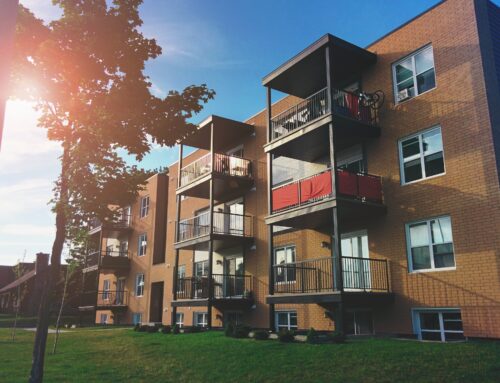We hear from people all the time who want to know: How can I move to Canada? Many of them are older Americans wanting to retire in Canada, some are younger digital nomads looking for a comfortable place to settle for an extended temporary stay.
We hear from a lot of Americans who want to get away from Donald Trump or their ranting Republican coworker whose Hummer takes up 4 spaces in the parking lot, and from a few who are driven to desperation by their left-wing elitist neighbour with the post-graduate degree in an obscure field of the humanities. But one thing they have in common, they look north to Canada and see a land of tolerance, diversity, and serenity.
Others are just looking to get out of a place that lacks safety, security, and a good quality of life, the things that people have come to cherish about living in Canada. We’ve talked about the multiple types of work visas and student visas offered by the Canadian government in this article on immigration programs.
But if you’re an independent nomad or a retiree just looking for a change of scenery, and you’re fascinated by Canada’s high quality of life and wide open spaces, here are some tips for you.
How long can I stay?
Most visitors, including Americans, can stay in Canada for up to six months without a visa. Other nationalities with visa-free access to Canada include Mexico, Brazil, Australia, and most of Europe. View the complete list of nationalities.
If you’d like to stay for more than six months, you can apply for an extension at least 30 days before the end of your authorized stay. You can also apply for an extension online.
What if I’m self-employed and work remotely?
If you are what’s known as a Digital Nomad, working freelance from anywhere, from the comfort of your own laptop, you can apply to move to Canada as a self-employed person. Canada uses a point system, which looks at your level of education, work and income history, age and other factors, to decide whether you qualify to immigrate. For more specific information on the application process, read this list of eligibility factors .
Can I retire in Canada?
If you plan on living in Canada for fewer than six months a year (just in the warmer months, for example), then you can simply come and go as you please, in most cases. But if you want to retire and live in Canada full time, you’ll have to apply for Permanent Residency. Like most immigration programs, this involves a point system. If you are advanced in years, your age can count against you. If you are financially independent and have loads of greenbacks in the bank, that will count in your favor. In some cases, it may be wise to apply for Permanent Residency before you retire, i.e. when you are younger and presumably have more income.
Look here for complete details on Permanent Residency.
Or go directly to the Permanent Residency application.
Will I need an immigration lawyer?
As you can see, there are a few options on how to immigrate to Canada, and it’s definitely possible without a lawyer. But if you can afford it, and you ‘d like a little extra reassurance, you might prefer to hire an attorney. A good immigration attorney can help you select the immigration program that makes the most sense for you. And once you chosen the immigration path, your lawyer can help expedite the process, ensuring that you have all the necessary forms and documents, filled out correctly, and submitted in a proper and timely manner.
At ARIANNE, we offer a wide variety of relocation services, but we are NOT immigration lawyers, and we are NOT qualified to give legal advice. If you do seek legal advice, there are many immigration attorneys to chose from. Many of our clients have gotten good results from the Galileo Partners, so that’s one legal firm you can speak with.
If you know where you’re moving in Canada, be sure to select a lawyer who is familiar with that province. Quebec, for example, has many laws (and immigration laws in particular) that differ from the rest of Canada.
Even if you don’t need an attorney, you still might wish to hire an immigration consultant to ensure that you are doing everything right. In this case, it is essential to find a Regulated Canadian Immigration Consultant (RCIC), licensed by the Immigration Consultants of Canada Regulatory Council (ICCRC). Visit their website to find a licensed immigration professional.
Conclusions
If you are looking to retire in Canada or settle there for an extended period, it is very possible. And as we’ve mentioned elsewhere, there are many reasons why a person might choose to do this. Mainly, its Canada’s quality of life, prosperous economy and stable political climate.
Probably the easiest and most pragmatic way to proceed would be to come to Canada for the warmer season, and stay for no more than 6 months at a time. Most Westerners can do this without obtaining any extra visas or going through any immigration process.
Otherwise, as in most countries, Canada’s immigration policies will favor the financially stable. In other words, if you have enough income or money in the bank, then you can prove that you will not be a burden on the state, and you will have an easier time getting a permanent residency. That is, if you decide you want to live in Canada full time.
For a thorough overview of the immigration and relocation process, be sure to check out our article on the 5 Steps to Canadian Immigration. You might also be interested in our article on Moving to Canada as an American.
If you need additional assistance in relocating to Canada, familiarizing yourself with your new city, new culture, new laws and customs, feel free to contact ARIANNE Relocation Specialists. With 20+ years of experience, we make relocation easy.







Leave A Comment